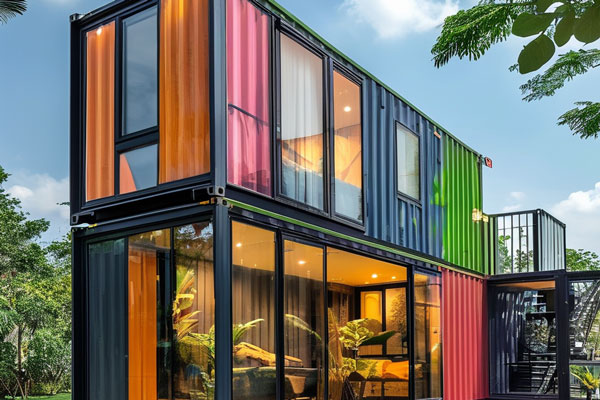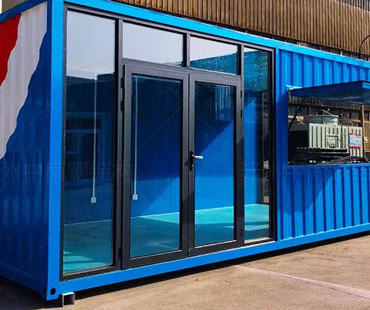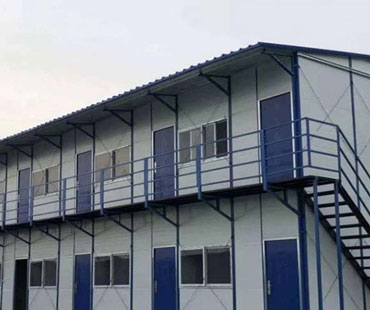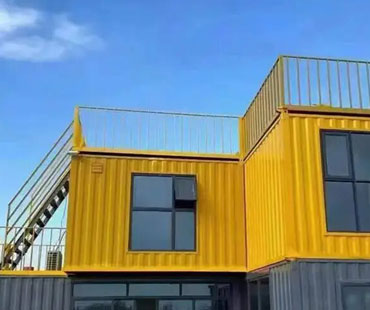The concept of the "container economy" has emerged as a transformative force in the realms of logistics, transportation, and urban development. As the global trade landscape continues to evolve, the humble shipping container has transcended its original purpose, becoming a versatile tool that unlocks new opportunities across various sectors.
1. Revolutionizing Transportation Methods
-Efficiency and Cost Savings
Shipping containers have revolutionized the transportation industry by providing a standardized, efficient way to move goods across long distances. This standardization reduces loading and unloading times, minimizes cargo damage, and lowers transportation costs. The ability to stack containers securely allows for optimized use of space on ships, trucks, and trains, facilitating seamless intermodal transportation. As companies increasingly adopt containerization, they benefit from enhanced operational efficiencies and reduced shipping expenses, making global trade more accessible.
-Innovation in Logistics
The container economy has also spurred innovation in logistics. Companies are leveraging advanced technologies such as the Internet of Things (IoT), artificial intelligence (AI), and blockchain to enhance supply chain transparency and efficiency. For example, smart containers equipped with IoT sensors can provide real-time tracking and condition monitoring, allowing logistics providers to optimize routes and reduce delays. This technological integration fosters a more responsive and agile logistics environment, essential for meeting the demands of modern consumers.
2. Urban Development and Revitalization
-Adaptive Reuse of Containers
Beyond transportation, shipping containers have found a new life in urban development. Their modular nature and structural integrity make them ideal for adaptive reuse in various architectural projects. From pop-up shops and food stalls to affordable housing and community centers, containers are being repurposed to address urban challenges such as housing shortages and commercial revitalization. This innovative approach not only reduces construction waste but also promotes sustainability by minimizing the need for new materials.
-Urban Regeneration Projects
The container economy is also driving urban regeneration initiatives in cities across the globe. Decommissioned shipping ports and industrial areas are being transformed into vibrant mixed-use developments that incorporate shipping containers. These projects often feature retail spaces, offices, and recreational areas, fostering community engagement and economic growth. By utilizing containers, urban planners can create dynamic spaces quickly and cost-effectively, breathing new life into underutilized areas.

3. Sustainable Development
-Eco-Friendly Construction
As sustainability becomes a central focus in urban development, the container economy offers eco-friendly alternatives to traditional construction methods. Shipping containers are often made from recycled materials, and their modular design allows for efficient use of resources. Additionally, many container projects incorporate green building practices, such as solar panels and rainwater harvesting systems, further enhancing their environmental credentials. By promoting sustainable construction, the container economy aligns with global efforts to address climate change and reduce urban carbon footprints.
-Promoting Local Economies
The container economy also supports local economies by enabling small businesses and entrepreneurs to enter the market with lower capital investment. Container-based retail spaces can be established in diverse neighborhoods, allowing local vendors to offer unique products and services. This entrepreneurial ecosystem not only stimulates local job creation but also fosters a sense of community and belonging.
4. Challenges and Considerations
While the container economy presents numerous opportunities, it is essential to acknowledge the challenges that accompany its growth. Issues such as zoning regulations, permitting processes, and public perception of container developments can pose significant hurdles. Furthermore, the long-term viability of container structures must be considered, particularly regarding insulation, durability, and compliance with building codes.
The container economy is reshaping the landscape of transportation and urban development, unlocking new opportunities that enhance efficiency, sustainability, and community engagement. By embracing the versatility of shipping containers, industries can innovate and adapt to the evolving demands of a globalized world. As we move forward, it will be crucial to address the challenges associated with this burgeoning economy while harnessing its potential to create thriving, resilient urban environments. Ultimately, the container economy stands as a testament to the ingenuity and adaptability of human enterprise, paving the way for a more interconnected and sustainable future.


